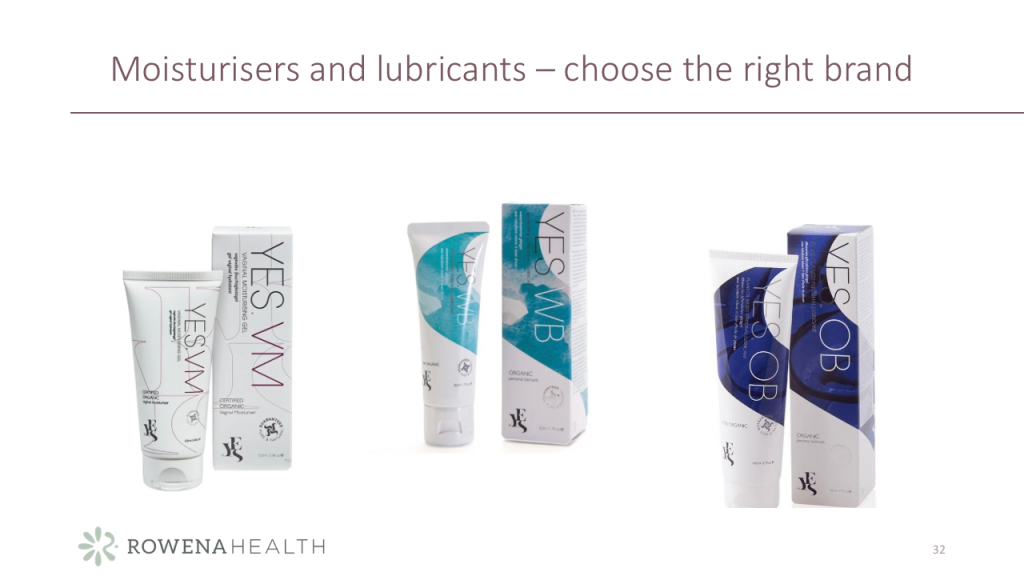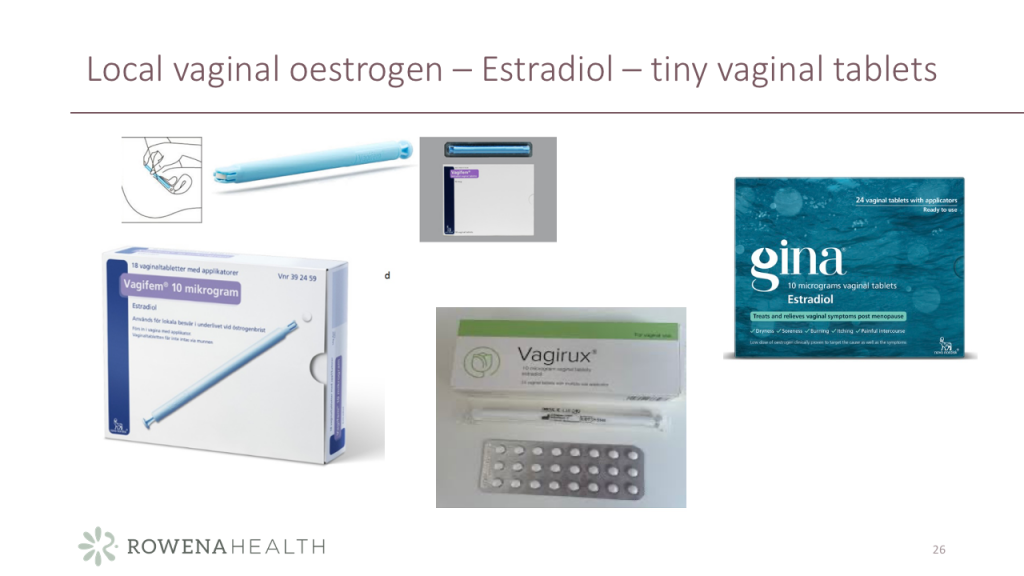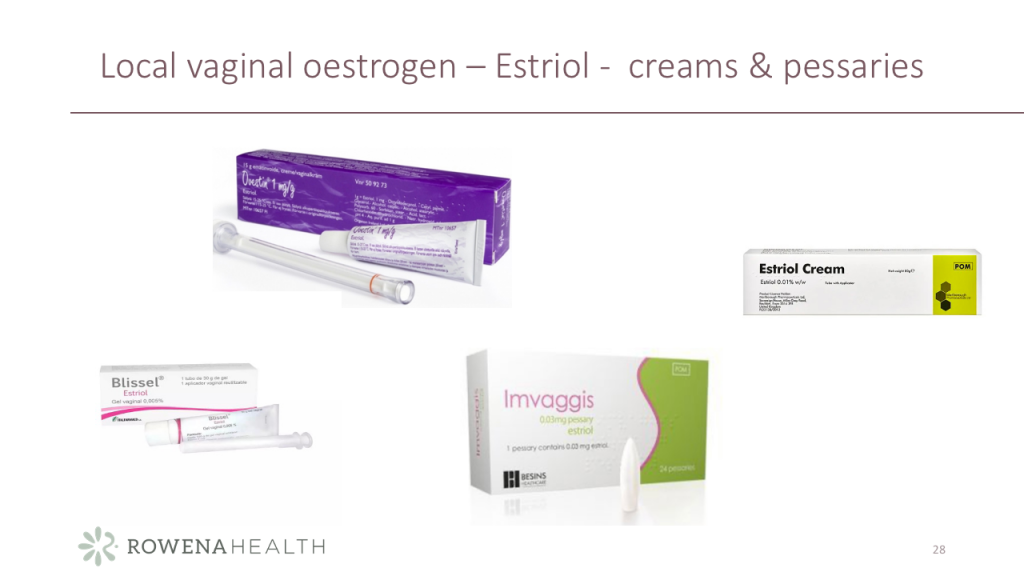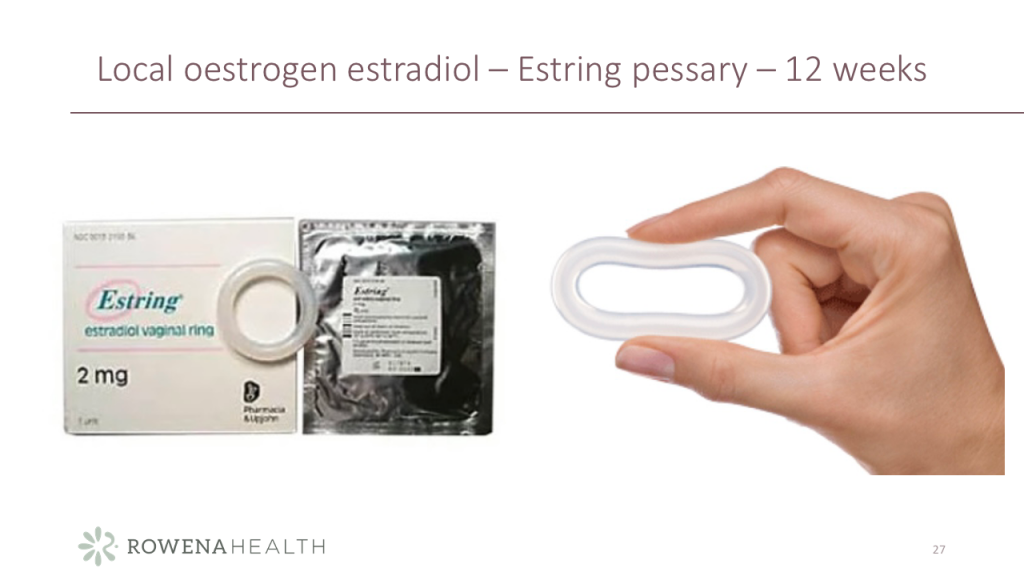80% of women suffer with vaginal and bladder symptoms in menopause if they do not take HRT, and 25% of women have these symptoms if they do take HRT. What is vaginal oestrogen and how is this different to HRT? Vaginal oestrogen products are
Genitourinary Syndrome of the Menopause is a term used to describe the vaginal and bladder symptoms, affecting 80% of women. A low oestrogen environment causes changes in the bladder and genitals and can lead to:
- Bladder symptoms such as urinary frequency, urge to pee, dysuria (stinging on passing urine), nocturia (need to pass urine at night), urine infections, urge and stress incontinence (leaking on the way rushing to the toilet, or leaking on cough, sneeze, jump or laugh, for example), urine infections and pelvic organ prolapse (a weakness in the pelvic floor muscles).
- The gential area, vulva and vagina can become dry, itchy, sore, irritated, prickly or burning, there may be shrinkage of the labia, clitoris and vagina which can affect sexual pleasure. Tissues can thin and bleed on contact and the vagina, which is usually acidic and healthy with lactobacillus, becomes less so. There can be a wetness or a dryness.
- A prolapse can give a sensation of a fullness or pressure in the vagina, it can affect bladder and bowel function, cause sexual difficulties or even present as a lump that protrudes from the vagina. Sometimes there are no symptoms and the prolapse is just noted at the time of a smear test or other examination. Treatment is not always necessary if there are no symptoms, but pelvic floor exercises can be helpful, as can weight loss, avoidance of constipation and vaginal oestrogen replacement (sometimes in addition to HRT). Please see your GP or a pelvic floor physiotherapist for an assessment.
These are some of the commonly prescribed local vaginal oestrogen products which can be taken alone or alongside your HRT, long term to help these symptoms. Gina is available to buy over the counter. They take 2-4 months to work, they may need dose adjustment, they only work whilst they are being taken.
Please discuss with your Dr to be sure they are appropriate for you to take. Please seek medical specialist advice before starting these if you are taking aromatase inhibitor medication.
At Rowena Health we can prescribe these products or your GP can prescribe them.
If the symptoms are not resolving please see a Dr to ensure the diagnosis is correct.
These links give you much more detail.
Womens Health concern Vaginal Dryness leaflet
Womens Health concern Urogenital symptoms leaflet (bladder and genital symptoms)
Please click on this link to listen to the BMS video on this topic.




Updated July 2024 Dr Carys Sonnenberg

